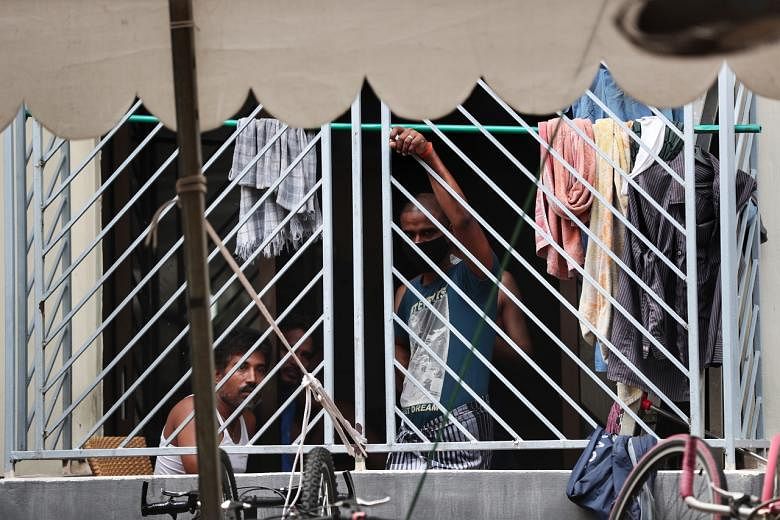SINGAPORE - Tackling the Covid-19 pandemic has been a major challenge despite Singapore's experience with the Sars outbreak, said Senior Minister and Coordinating Minister for National Security Teo Chee Hean.
As the disease is far more infectious than the severe acute respiratory syndrome (Sars), heightened surveillance and tightened precautions in migrant worker dormitories early on proved to be insufficient, he added.
Even so, Singapore has managed to "orientate, adapt and act rapidly" to each wave of the virus, said Mr Teo, who is advising the multi-ministry task force on handling the Covid-19 outbreak in foreign worker dormitories.
Speaking in a national TV broadcast on Thursday, he said: "The crisis has stretched our resources and capacity... Each wave required us to develop and deploy novel measures to slow down the spread, and contain it."
Sars in 2003 infected 238 people and killed 33 people in Singapore. Globally, there were 8,096 cases and 774 deaths.
Mr Teo's speech - the third in an ongoing series of TV broadcasts by six ministers - focused on Singapore's post-coronavirus future.
In his speech, Mr Teo talked about how no Covid-19 cases were reported in dormitories on March 25. When this number rose to 26 just 10 days later, action was taken to isolate some dormitories.
"However, the infectiousness of this virus and the communal living conditions in the dormitories meant that in a fortnight, by 20 April, we were recording more than 1,000 new cases per day in the dormitories," Mr Teo said.
By that time, the Government had already started building community care facilities. Plans for these were accelerated and scaled up, with new capacity added daily. At the peak of the outbreak on May 12, more than 20,000 patients were being cared for in such facilities.
This massive effort was made possible by mobilising resources from the public service, government-linked companies, and the private sector, said Mr Teo.
"This is how we are able to take care of every patient without overwhelming our healthcare system and putting lives at risk," he said.
-
The national broadcasts by Singapore leaders will start from 7.30pm on the following dates:
June 7: Prime Minister Lee Hsien Loong.
June 9: Minister for National Development Lawrence Wong.
June 11: Senior Minister and Coordinating Minister for National Security Teo Chee Hean.
June 14: Minister for Trade and Industry Chan Chun Sing.
June 17: Senior Minister and Coordinating Minister for Social Policies Tharman Shanmugaratnam.
June 20: Deputy Prime Minister Heng Swee Keat.
All speeches will be televised in the four official languages. Or watch it on Gov.sg website, Facebook page, YouTube channel and Twitter.
Healthcare volunteers stepped up to man these facilities, and officers from the Singapore Armed Forces and Home Team were also roped in.
Mr Teo said the coronavirus pandemic was not a mission the SAF and Home Team had specifically prepared or trained for.
By setting up the Joint Task Forces (JTF) within days - to support efforts by the Manpower and Health ministries on the front lines - the SAF and Home Team showed their readiness and flexibility, he added.
He said: "The JTFs played a critical role by establishing a command, control and information system, deploying Forward Assurance and Support Teams to all the dormitories to look after more than 300,000 workers, and supporting MOH's overall Medical Support Plan.
He added that tackling the Covid-19 outbreak in dormitories has been a "tremendous effort", with operations still ongoing to bring the situation fully under control. However, the number of daily cases has already come down to between a third and half of the peak.
Mr Teo said the crisis revealed the need for Singapore to build reserves and the resilience to deal with such unexpected events. "We need not just financial reserves. We also need able and experienced people, organisational capacity and operational agility."
He said: "The clear lesson for me is that in 'peacetime', we need to plan on facing the unknown, and build deep reserves of people and capabilities, so that when we face a crisis, we can act decisively, and respond flexibly and rapidly."












